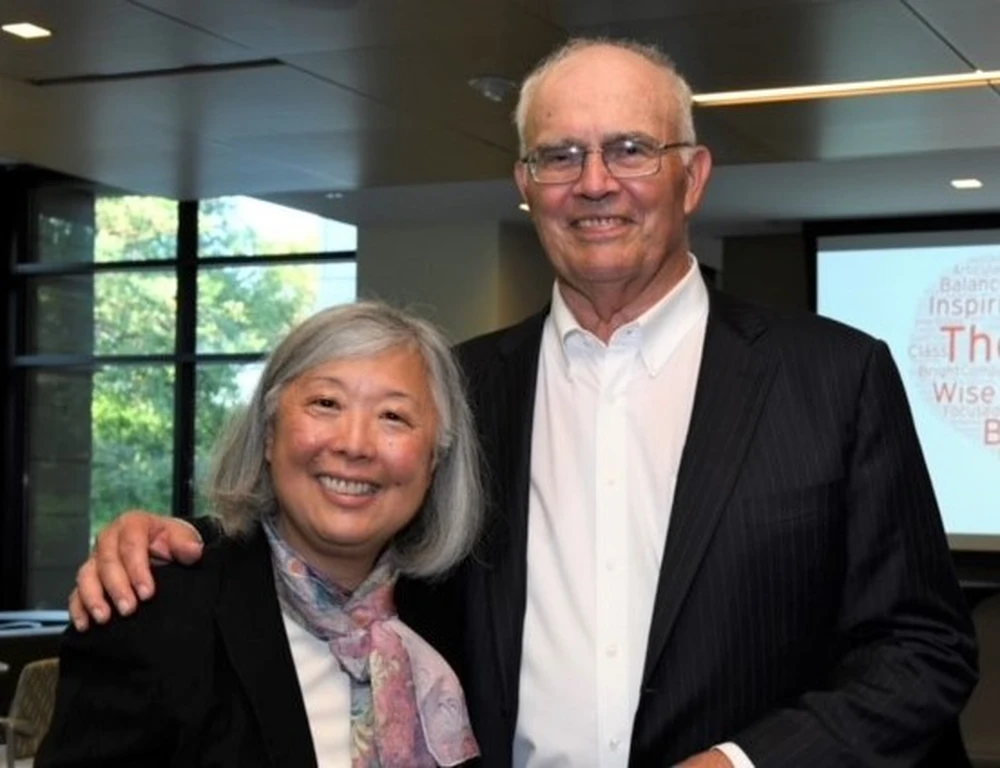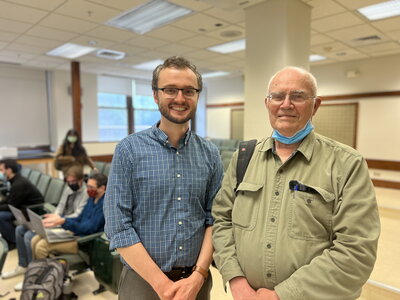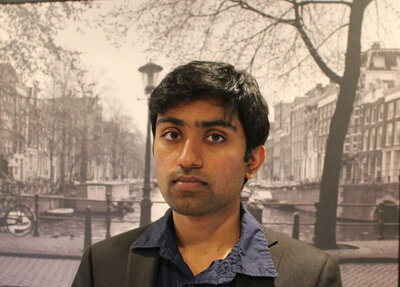
Students at UIUC who want to learn data science combined with machine learning and how to apply these techniques to their own research now have the ideal course thanks to a gift from two Illinois alumni.
The Thomas Remec and Susan Morisato Fund for Data Science in the Chemical Sciences was established in July 2021 by Thomas M. Remec (BS, ’74, Chemistry; MS, ’83, Metallurgical Engineering) and Susan C. Morisato (BS, ’75, mathematics and education; MS, ’77, mathematics).
Their gift funds a "Data in Chemical Science and Engineering" course for undergraduates and graduate students taught by Professor Nick Jackson who specializes in theoretical materials chemistry, including data-driven and machine learning approaches to soft materials, and by Professor Diwakar Shukla in Chemical and Biomolecular Engineering. The class began in the Fall 2022 semester.
Jackson said the fundamental objective of the course is to learn how to "do" machine learning and data science on real experimental data sets using Python.

Based on a staple of machine learning methodologies that are standards in academia and industry, Jackson teaches these topics entirely in the context of chemistry, chemical engineering, and materials science applications.
“Provided the way data science and machine learning have transformed and continue to transform our everyday experiences, it is critical that our students at UIUC be educated in many of these techniques so that they are ready to benefit both in their research projects and in the workforce,” Jackson said. “Data science is not a subject that just benefits 'computer people' - it has the power to impact nearly every avenue of chemical research and industry.”
The gift also funds online technology resources to increase access to students and a summer research experience for Illinois undergraduates in the area of data sciences + chemistry. The inaugural year Summer 2022 undergraduate scholars were Ayu Seiya and Swaroop Thammineni.
Seiya is working with Professor Martin Gruebele to use machine learning in combination with quantum mechanical modeling to understand and control how vibrational energy flows and distributes within molecules. These predictions can potentially enable novel, highly selective chemical reactions that leverage the strategic concentration of thermal and vibrational energy in molecules. These new reactions could hypothetically facilitate new chemistries unobtainable by current synthetic methodologies.
Thammineni’s research focuses on proteins, which carry out many biological processes and are linearly synthesized by amino acid sequences. It is important, he said, to model the various dynamic conformations of proteins to understand internal mechanisms and functions that can help design novel drugs and provide insight into diseases. A new approach to model protein dynamics is to use machine learning, Thammineni explained.

“The objective of my project is to see if amino acid correlations (evolutionary couplings) can be predicted from a protein sequence through modeling. Furthermore, the project intends to explore the efficacy of these evolutionary couplings in representing the dynamic conformations of a protein,” he said.
On a recent visit to the UIUC campus, Thomas Remec stopped by the Data in Chemical Science and Engineering class to meet the students and Jackson.
“I'm proud to have been accepted to pursue my career path at Illinois and it energizes me to have the occasional opportunity to meet the next generation of professors, graduate students, and undergrads,” he said.
Remec explained why he and Susan chose to make this gift.
“While the state of Illinois has been more than generous with respect to funding our campus, there comes a time when we who benefitted must step up and make their own contributions in order to spread the financial burden,” he said.
Remec said the topic of this new course provides skills which can help students put together a research program “and also can assist data analysis which may well help improve the professionalism and breadth of their theses.”
Jackson said the gift of these funds has enabled the development of course materials that will form the basis of all future departmental courses in this area.
“Moreover, the support for undergraduate research projects in data science is exposing undergraduates to how data science and machine learning can synergistically interact with the chemical sciences,” Jackson said. “I wish such opportunities had been around when I was an undergraduate.”
— Tracy Crane, Department of Chemistry